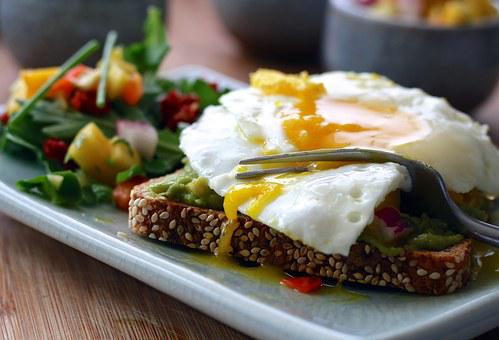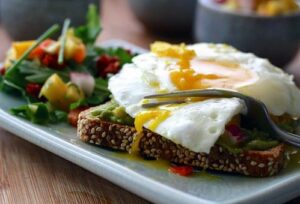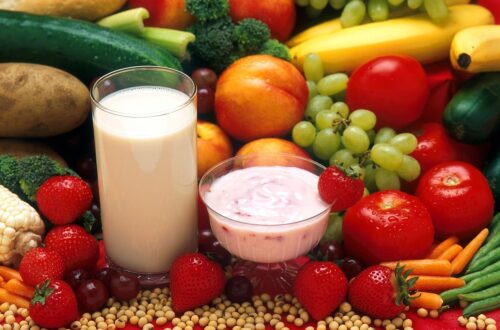
Unique Nutrition Needs for Women Ages 55+
“Good nutrition creates health in all areas of our existence. All parts are interconnected.”—T. Colin Campbell
They say you are what you eat, right?
Yet, our fast way of modern living often means grabbing whatever we can and stuffing it in our mouths to fight our immediate hunger pains.
So, we grab a candy bar or bag of potato chips and rinse it down with a soft drink—or maybe a beer!
Whoa!
What just happened here??
Sweets and snacks have little to no nutritional value.
Making the practice of eating “junk food” harms physical and mental health.
And primarily upon the health and bodies of older women ages 55+.
Women ages 55+ have unique needs when it comes to nutrition.
What Is Nutrition?
In scientific terms, “Nutrition is the supply of food we need as an organism to feed our cells and keep them alive.” (Health&Wellbeing.com)
“Nutrition is the process of taking in food and converting it into energy and other vital nutrients required for life.” (byjus.com)
In other words, nutrition means getting the necessary food for health and growth.
The Latin word for nutrition is “nourishing.” You need specific nutrients for life and development.
Nutrition and Obesity
Nutrition is critical to staying healthy.
A healthy diet helps reduce the risk of being overweight and obese.
People that eat healthy live longer and are at lower risk for serious health problems, such as:
- Heart disease/cardiovascular
- Type 2 diabetes
- Obesity
According to a 2018 report by the Centers for Disease and Prevention (CDC), “The prevalence of obesity was 39.8 percent and affected about 93.3 million U.S. adults in 2015-2016.”
However, a more recent study stated that “All U.S. states and territories have an obesity rate of 20%.”
(CDC, 2019)
And…
“Obesity-related medical costs could rise by $8 to $66 billion by 2020.”
(Harvard, 2020)
But much more severe than the financial costs of treating obesity, carrying around a lot of extra fat can have a powerful impact on your health:
- Type 2 diabetes
- High blood pressure
- Heart disease
- Sleep apnea
- Musculoskeletal disorders like osteoarthritis
- Some cancers (endometrial, breast, and colon)
- Early death
Some common symptoms of obesity:
- Tiredness
- Joint or back pain
- Snoring
- Low self-esteem/low self-confidence
How Do You Measure Obesity?
A person can become obese by consuming more calories than the body needs.
However, there are other factors:
- Inactivity
- Diet
- Genes
- Ethnic & socioeconomic background
- Use of certain drugs
The body mass index (BMI) defines overweight and obesity. BMI is the weight (in kilograms) divided by height (in meters squared):
- Being overweight is usually defined as a BMI of 25 to 29.9.
- Obesity is defined as a BMI of 30 to 39.9.
- Severe obesity is defined as a BMI of 40 or higher.
(Source: Merck Manual: Consumer Version)
What Does Nutrition Have to Do with It?
Without nutrition, we grow weak, sick, and sometimes die.
But as to how nutrition relates to weight gain, eating healthier is near the top of the list of most healthcare providers that diagnose and treat obesity.
However, this article has to do with the Unique Nutrition Needs of Women ages 55+.
Your body changes as you age, so it seems reasonable that what you eat and how you live needs to change too.
Following is a list of nine nutritional recommendations distinctive to older women:
- Get enough protein throughout your day to maintain muscle mass:
- Lean meat, turkey, chicken breast
- Eggs
- Fish (salmon, tuna, shrimp)
- Eat different types of fruit with bright colors.
- Enjoy whole grains (oatmeal, brown rice).
- Include beans, nuts, and seeds.
- Drink dairy (low-fat or fat-free milk, soy or rice milk).
- Drink water (hydrate, hydrate, hydrate) often because you may lose some of your sense of thirst as you age.
- Drink 100% juice to help you stay hydrated. Limit beverages with lots of sugar or salt.
- Maintain a healthy weight or prevent additional weight gain by cutting down on calories and adopting an active lifestyle.
- Stay strong and prevent losing muscle mass as you age by doing strength training (use light weights, do yoga, or do Pilates).
Should You Take Nutritional Supplements for Better Health?
Jeffrey Blumberg, Ph.D., professor of nutrition at Tufts University School of Nutrition, Science, and Policy, says, “It’s one thing you can do that’s not too hard to do.”
Dr. Blumberg believes that seniors need to do what they can to protect themselves from heart disease and cancer, which happen to be the two leading causes among those over sixty-five years of age.
While they include what’s missing in a typical diet, Nutritional supplements also decrease the risk of these deadly diseases.
To Dr. Blumberg, it’s clear: a diet that follows the food pyramid and daily supplements.
What does he recommend?
- Vitamin B-12 folate (found in dark green, yellow, and orange fruits and vegetables, beans, seeds, spinach, orange juice, and lentils) protects from cardiovascular disease and stroke.
- Vitamin E (is found in fatty foods such as nuts and oils, though conflicting evidence exists that this vitamin reduces the risk of heart disease, cancer, and other conditions.
- Calcium and Vitamin D (will prevent bone thinning, leading to fractures; however, the best source is the sun).
Warning
Supplements do not make up for a poor diet. While they can help, they cannot replace many nutrients and fiber found in food.
Bottom Line
- Vitamins and minerals have no calories.
- Food has all the vitamins and minerals.
- If your diet lacks a vitamin or mineral over a long period, you will develop a deficiency.
- The “best” form of most vitamins and minerals is the kind you get from food.
(Source: WebMD.com)
Remember
Without nutritious food choices, you’re at greater risk of chronic disease.
But a healthy diet benefits you physically, mentally, and socially.
George Watson, a former university professor, in his book Nutrition and Your Mind, noted:
“What you eat determines your state of mind and, in a sense, the sort of person you are.”
Professor Watson further claims, “Most erratic behavior is caused by an undernourished brain, an exhausted nervous system, or any number of other physical problems related to an imperfectly functioning metabolism.”
And Hippocrates, called the “father of medicine,” is reported to have said
“Thy food shall be thy remedy.”
Therefore, according to many experts, proper nutrition is essential and can affect your health and well-being.
The best way to ensure natural nutrition is through the food you eat.
If you’re a woman aged 55+, nutritional knowledge, particular to you, can help ensure good health and vibrancy as you age.
Please, follow the tips in this article to help make sure that you’re getting the nutrients you need to stay healthy and vigorous.
Good health to you!
Sources for this article:
Merckmanuals.com
PubMed.gov
WebMD.com
Nutrition.gov
A Family Caregiver’s Guide: 7 Secrets to Convert Negative Triggers to Positive Emotions (2019)




